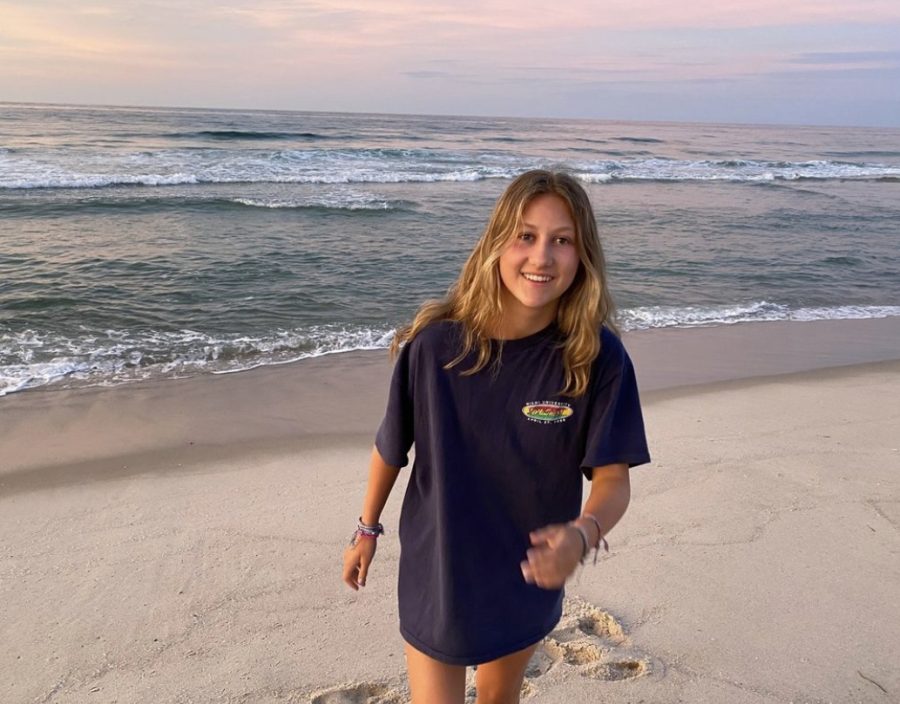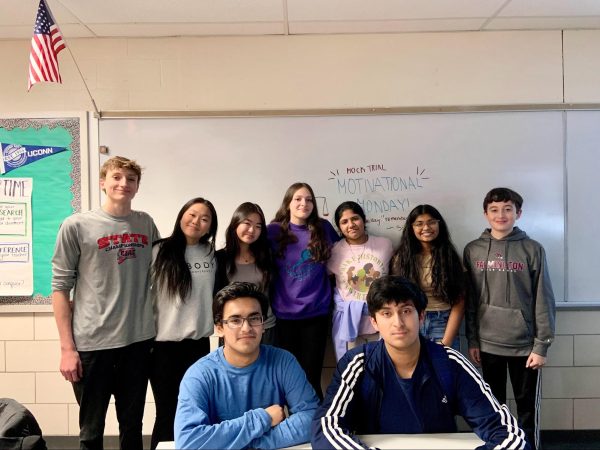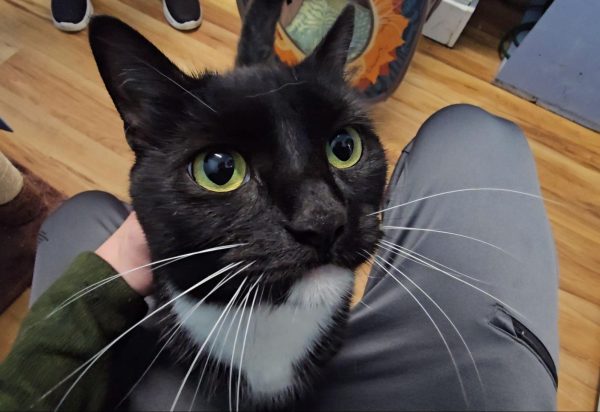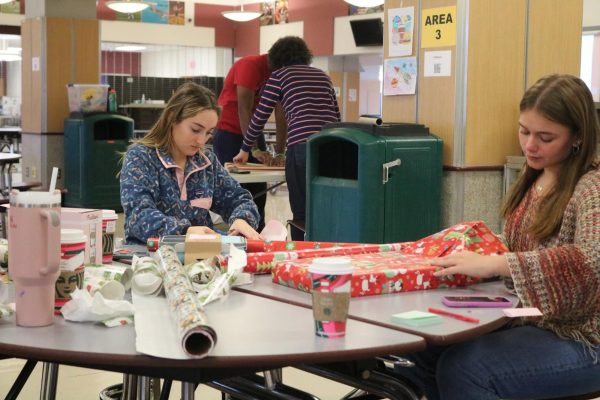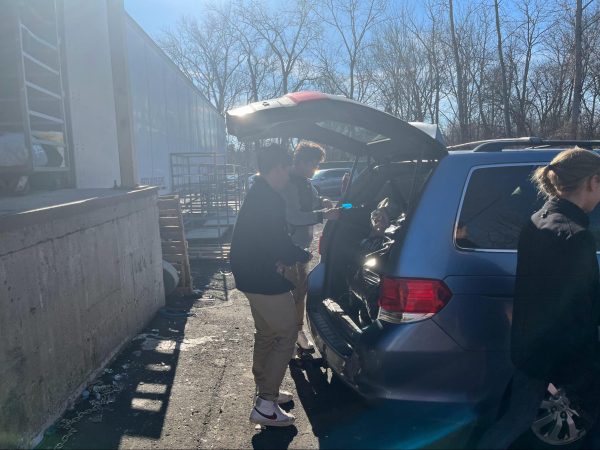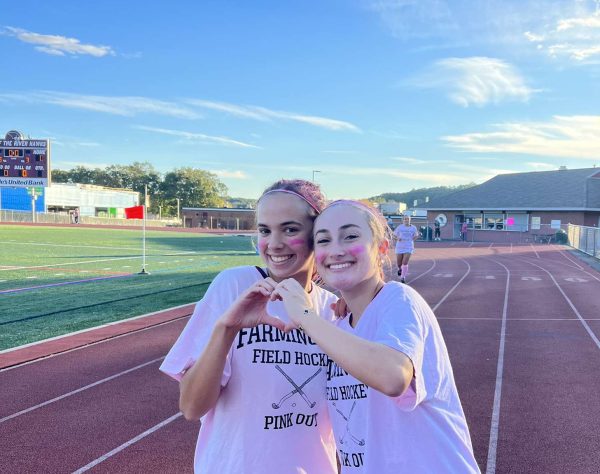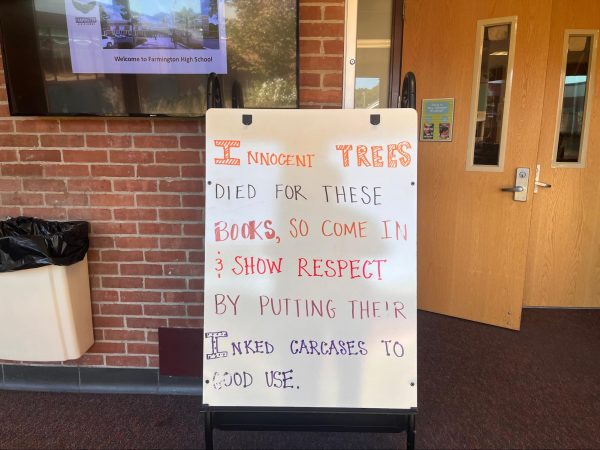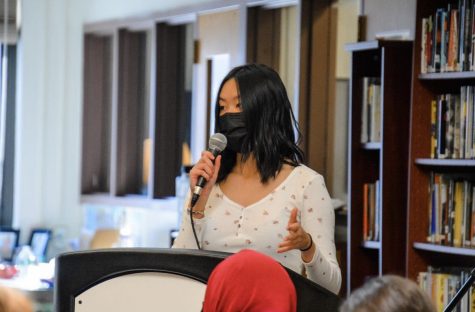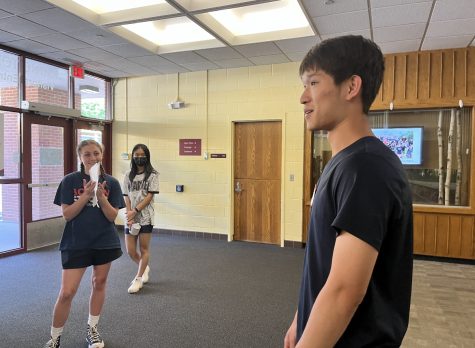Lila Manton takes on environmental conservation, partners with nonprofit to limit microfiber waste
Our ocean — Sophomore Lila Manton appreciates the ocean and explores a local beach as a Plastic Tides ambassador. Manton is working to spread awareness about how microfibers from clothing cause pollution of rivers and oceans.
April 26, 2022
Sophomore Lila Manton is working with the Plastic Tides organization to deliver a presentation about microfibers and plastic pollution in the ocean. As a young environmental conservationist, Manton is educating the community about the overlooked problem while providing a product to help limit pollution.
Plastic Tides is a nonprofit organization dedicated to stopping the pollution in the oceans and earth. The Global Youth Mentor (GYM) program allows youth leaders to initiate projects within their community that work towards environmental conservation.
“We believe the solution to plastic pollution is rooted in grassroots movements and initiatives. With a global community of motivated changemakers, we can move forward together,” Plastic Tides wrote on their website.
Manton’s self directed project focuses on microfibers, a type of microplastic that is found on clothing. When clothes are washed, the microfibers come off in the wash and end up in oceans and other environments, building up to become one of the main causes of plastic pollution.
“Microfiber is a topic that not a lot of people are aware of, despite it being such a large contributor to ocean pollution. I wanted to bring light to how each person contributes to the pollution problem so they can also contribute to change,” Manton said.
Manton aspires to calculate how much microfiber waste is going into the Farmington River in order to collect quantitative data from her community to send to the Plastic Tides organization. Her goal is to provide microfiber filters to households in the community, giving them the information to order the filters for their washing machines. Once they buy the filters, Manton will once again evaluate the amount of microfibers in the Farmington River to measure the impact of the filters.
“I wanted to create change in my community and the Plastic Tides organization allows me to do that. Environmental conservation is something that I am passionate about so I take pride in knowing that I am doing my part to educate others and create small ways to limit the amount of plastic in our oceans,” Manton said.
Manton started to spread her message to the local community on Eco Day, which took place on March 16. Working with members of the Eco Club, an infographic was created to share important advice to students. The poster featured information about the PlanetCare Filter and Cora Ball to spread awareness about the microfibers in clothing and how they impact the environment, the focus of Manton’s research.

